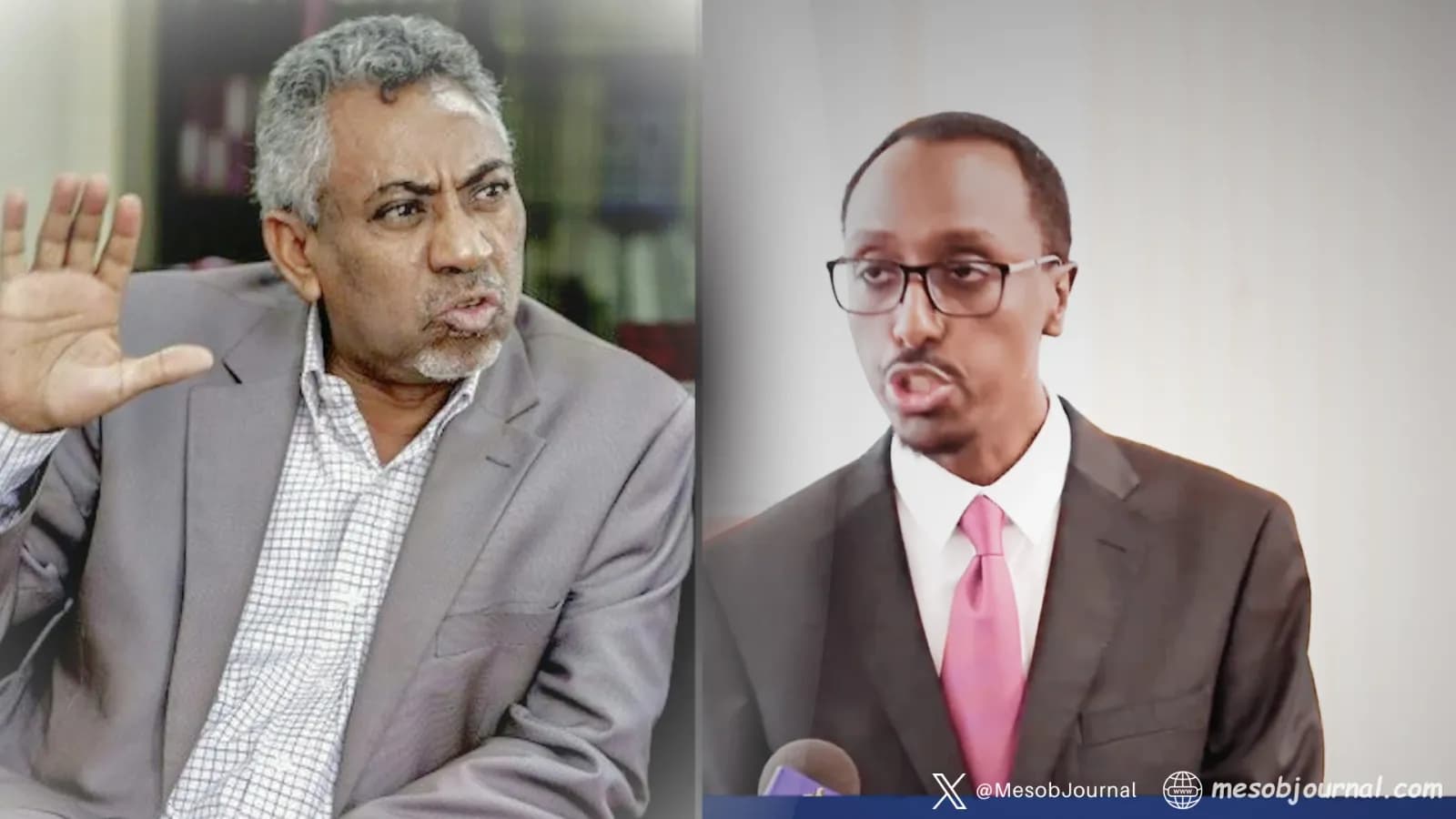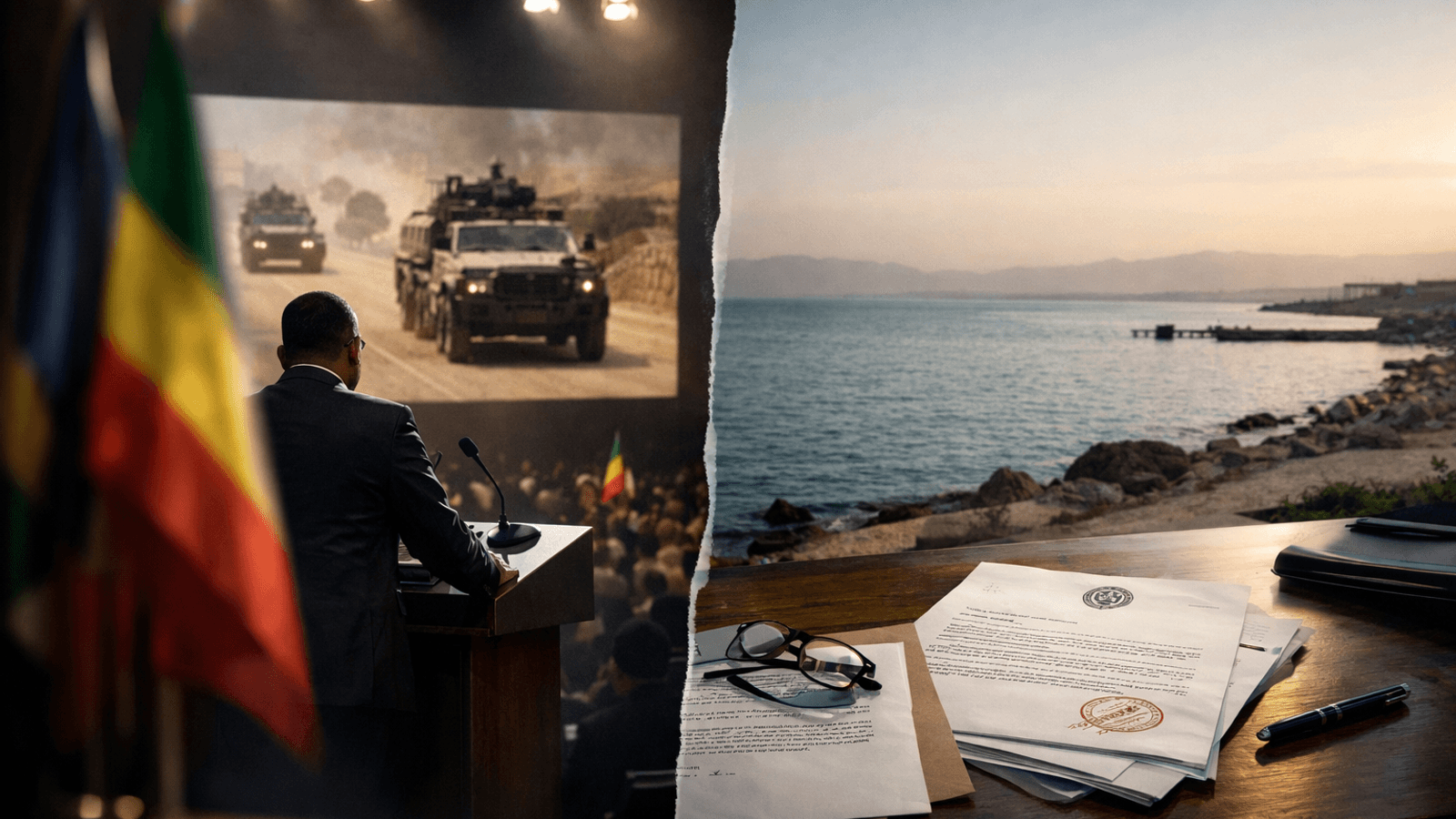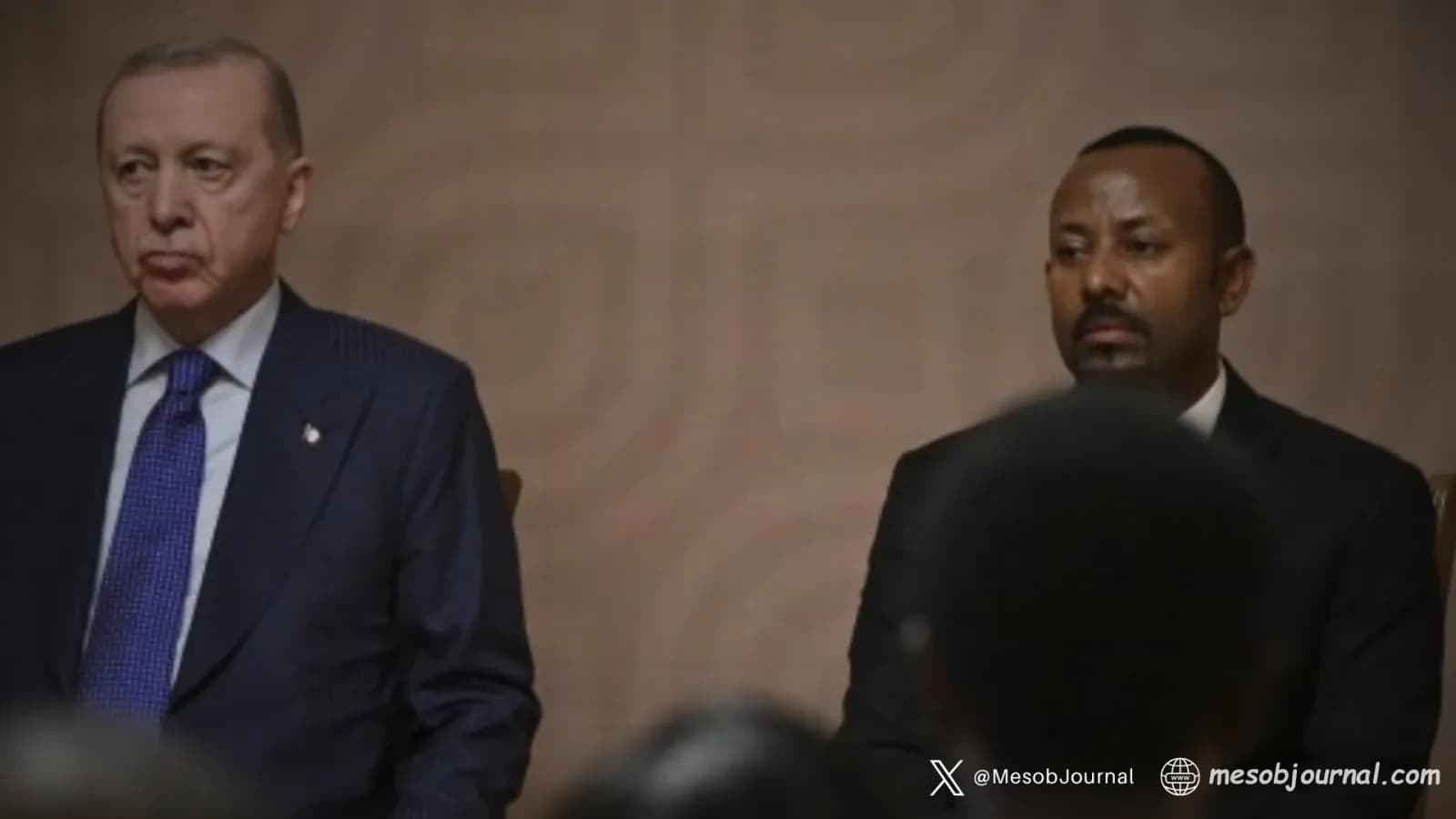Red Sea Riddles: Deconstructing Ethiopia's Gaslighting Gambit Against Eritrea

In the high-stakes theater of Horn of Africa politics, a familiar script is being rehearsed. The stage is set in Addis Ababa, the lead actor is the Ethiopian Foreign Ministry, and the plot revolves around a dramatic, almost comedic, attempt to recast an aggressor as the aggrieved. The latest performance, a lengthy monologue by Foreign Minister Gedion Timothewos, is a masterclass in narrative inversion—so audacious it would be impressive if it weren't so dangerously detached from reality.
Eritrea’s Minister of Information, Yemane G. Meskel, in a characteristically sharp and fact-laden rebuttal, has effectively pulled back the curtain to reveal the Potemkin village of Ethiopia’s claims. The core of Addis Ababa’s new narrative? After two years of incessant, public saber-rattling about "acquiring sovereign access to the sea by force if necessary," the Ethiopian government has suddenly switched to "mute-mode," now painting itself as the innocent victim of Eritrean destabilization. It’s a transparent ploy, a diplomatic sleight of hand designed to rationalize an unprovoked war they have been itching to unleash.
Let’s dissect this performance, not through the fog of rhetoric, but with the clear light of indelible history.
The Institutional Amnesia of a "Potemkin Party"
The most striking feature of the Ethiopian FM’s speech is what it conveniently forgets. As Yemane G. Meskel pointedly noted, senior PP officials seem to suffer from a curious "acute deficit of institutional memory," claiming an inability to "retrieve them from Cabinet, Parliamentary and other archives." How fortunate for a regime trying to whitewash its own belligerent record.
For those whose memories extend beyond the current news cycle, the facts are stark:
- The Spark of Liberation: Eritrea’s three-decade struggle for independence wasn't born in a vacuum. It was ignited when Ethiopia unilaterally dissolved the sham Federation and annexed Eritrea in 1962, a flagrant violation of international law and Eritrea’s inalienable right to decolonization. The original sin was Ethiopian expansionism.
- The Badme Charade: The 1998-2000 war was launched by the current Ethiopian ruling elite under the "putative pretext" of Badme. Yet, as Yemane reminds us, PP’s own Army Chief of Staff confessed just four years ago to the shameful truth: Parliament was lied into declaring war *after* the army had already been given orders to attack. The maximalist agenda was laid bare by then-Deputy FM Tekeda Alemu, who publicly declared that "capturing Assab" was a central war aim.
This historical record paints a consistent picture: successive Ethiopian regimes, coveting their neighbor’s land and endowments, have been the primary instigators of conflict. To now claim that a small nation like Eritrea, which has borne the brunt of these costly wars, is the perpetual destabilizer is not just inaccurate; it’s ludicrous.
The "Decaffeinated" Doctrine and Other Fairy Tales
The Ethiopian FM’s speech is littered with creative, if condescending, analogies that collapse under minimal scrutiny. The central metaphor—that Eritrea wants the "decaffeinated coffee" of sovereignty without the responsibilities—is particularly rich.
This analogy ignores the bitter brew Ethiopia itself is serving: a doctrine that claims a "sovereign" Ethiopia has an "existential" right to another sovereign nation’s seaports. This isn't a desire for decaf; it's a demand to drink from Eritrea's cup without permission.
The speech also introduces the fictional "Isaias Doctrine," which it defines as the belief that "Eritrea’s continued statehood... is contingent upon Ethiopia’s insecurity." This projection is breathtaking. For two years, it has been Addis Ababa’s highest officials, not Asmara’s, who have explicitly linked Ethiopia’s future survival to the acquisition of Eritrean territory by force. Who, then, is truly predicating their security on the insecurity of their neighbor?
The attempt to pathologize Eritrea’s governance while ignoring the profound crises within Ethiopia is the punchline to a joke no one is laughing at. To lecture Eritrea on economics while 21.4 million of one's own citizens need urgent humanitarian aid and 68.7% live in multidimensional poverty is an act of astonishing audacity.
Gaslighting 101: The Aggressor’s Playbook
The core strategy on display is a textbook case of gaslighting. The steps are clear:
1. Create a False Narrative: loudly and repeatedly declare your maritime ambitions and right to use force.
2. Provoke a Response: engage in actions and rhetoric that force the target nation to mobilize defensively.
3. Flip the Script: suddenly mute your own belligerence and accuse the target of being the real aggressor, pointing to their defensive posture as "proof" of their destabilizing nature.
4. Play the Victim: appeal to the international community, rationalizing your own planned aggression as "legitimate self-defense."
Ethiopia’s FM bemoans Eritrean "hostility" towards previous governments that "espoused no claim regarding the Red Sea." This deliberately misses the point. The hostility he references was a response to those very governments' active efforts to isolate, sanction, and undermine Eritrea, including, as Yemane notes, supporting terrorist groups like Al-Shabab. To disarm a nation and then complain it is not fighting fair is the height of disingenuity.
The Elephant in the Red Sea
The long-winded speech in Addis Ababa, for all its talk of "regional integration" and "tough conversations," fails to address the elephant in the room: you cannot build a future of cooperation on a foundation of territorial claims and historical revisionism.
Eritrea is not the spoiler. It is a sovereign nation that has, for decades, defended its hard-won independence against larger, expansionist-minded neighbors. The path to peace in the Horn does not run through Asmara’s capitulation to Ethiopian demands. It runs through the unconditional respect for the sovereignty and territorial integrity of all nations, a principle Ethiopia’s current regime seems to treat as a mere suggestion.
The international community would do well to see this gaslighting gambit for what it is: a clumsy, clownish attempt to dress up irredentist ambitions in the language of victimhood, a performance so transparent it deserves a review of boos, not applause. The curtain has been pulled, and the real script is plain for all to see.
Related stories

The “Powder Keg” Script: Crisis Group’s Eritrea Bias
International Crisis Group’s 18 February 2026 briefing advertises itself as conflict prevention. In reality, it performs something closer to narrative management: it repackages Ethiopia’s Red Sea ambition as a “grievance” to be accommodated, while keeping Eritrea boxed into the f

Ethiopia: Abiy's War Script and the Media’s False Balance on Eritrea
The lazy framing is already being warmed up: “tensions are rising,” “neighbours trade claims,” “both sides must de-escalate.” It sounds responsible. It reads balanced. And it quietly deletes the one fact that matters: one side has spent years normalising war talk as policy. If y

Erdogan in Addis: sovereignty first as Abiy beats sea-access drum
Abiy Ahmed tried to stage the usual Addis photo-op when Turkey’s President Recep Tayyip Erdoğan arrived. But the camera caught something different: a stiff, guarded prime minister sitting beside a visitor who didn’t look like he came for flattery. What played out at the joint app

Eritrea Dismisses Ethiopia’s Letter, Cites Two-Year Hostile Campaign
Eritrea’s Ministry of Information has dismissed Ethiopia’s latest diplomatic message as “patently false and fabricated,” rejecting what it described as a familiar two-year pattern of hostile campaigns — and pointedly refusing to be pulled into public escalation. In a short press

